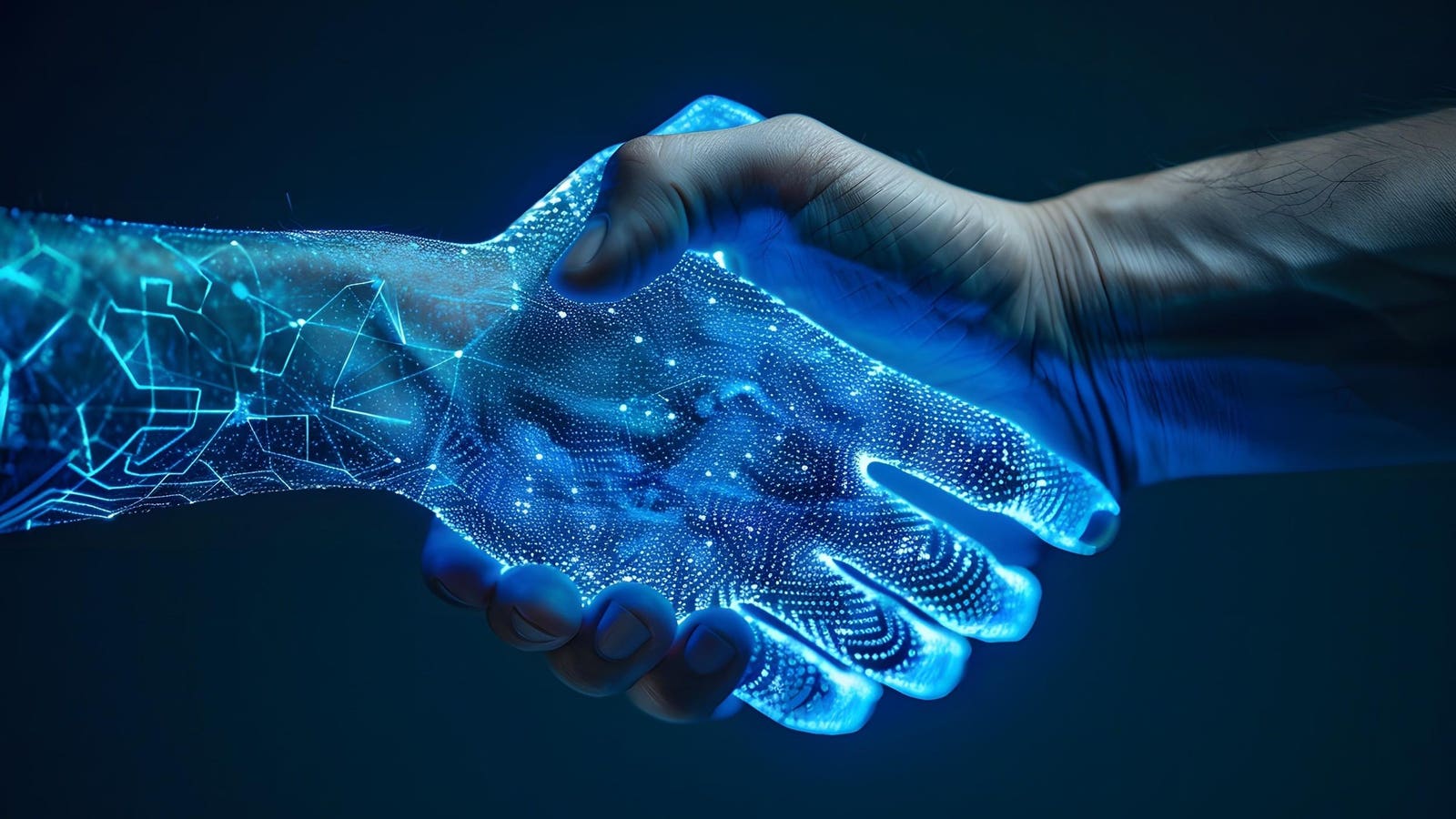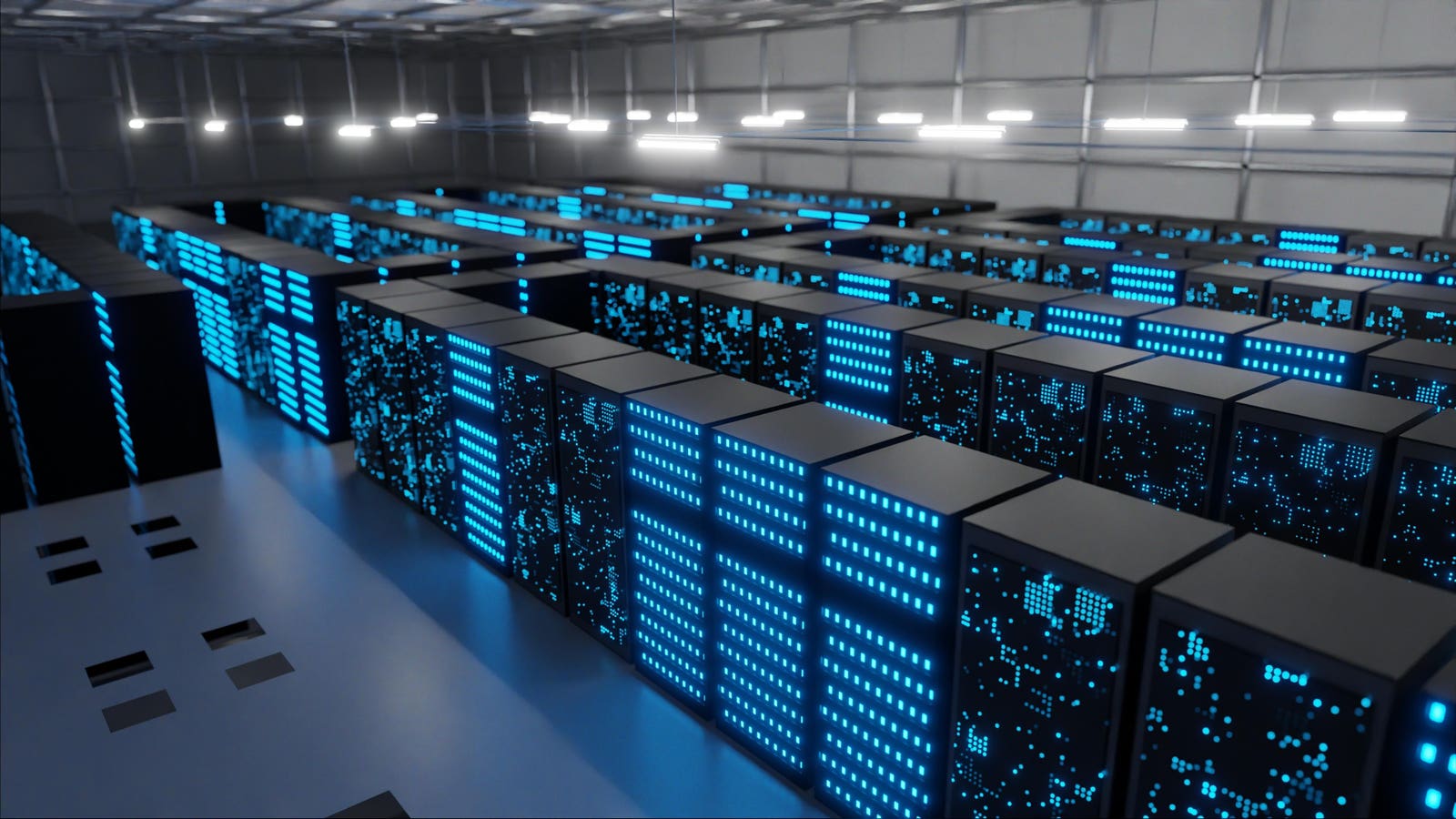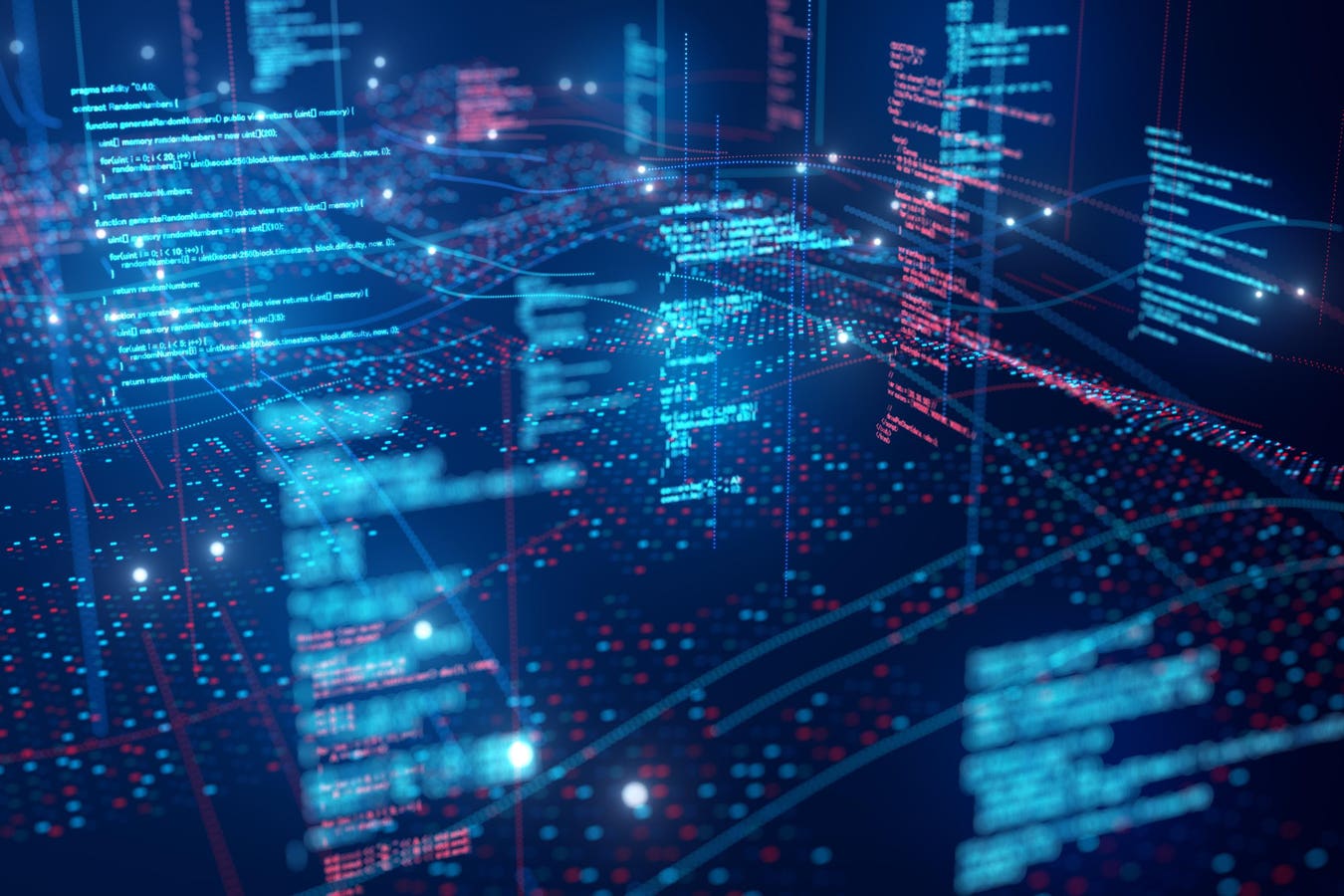Explore how artificial intelligence could shape the future of humanity, from transforming global … More
As someone who spends most of my waking hours exploring how emerging technologies transform business and society, I occasionally encounter perspectives that fundamentally shift how I view our technological future. My recent conversation with Richard Susskind, leading AI expert and author of “How to Think About AI: A Guide for the Perplexed,” provided exactly that kind of paradigm-shifting insight.
His latest book offers a comprehensive framework for understanding AI’s potential and pitfalls, going well beyond the superficial analyses that dominate today’s conversation.
Saving Humanity With And From AI
When I asked Susskind to unpack his view that AI represents “the defining challenge of our age,” he explained that we must simultaneously embrace two seemingly contradictory mindsets.
“On the one hand, this technology offers remarkable, perhaps even unprecedented promise for humans and civilization. On the other hand, in bad hands or misused, it could pose some very elemental threats to us,” Susskind told me. This duality requires us to move beyond polarized thinking about AI as either salvation or destruction.
What makes Susskind’s analysis particularly valuable is his ability to distinguish between different ways of thinking about AI. He separates “process thinkers” focused on how AI works from “outcome thinkers” concerned with what AI achieves.
“When people say machines can’t be creative or they can’t exercise judgment, I think that’s process thinking,” Susskind explained. “What they’re thinking about is that machines cannot think, cannot reason, cannot empathize, cannot create in the way that humans do.”
But the real story, according to Susskind, lies elsewhere: “Machines that most AI people are working on are not seeking to replicate the way humans work. They’re seeking to provide outcomes that match or even are better than those of human beings, but using their own distinctive capabilities.”
Our Conceptual Frameworks Are Inadequate
Perhaps the most thought-provoking aspect of our conversation centered on how our existing language and conceptual frameworks fail to capture what AI is becoming. Susskind compared our current situation to the pre-industrial era, when concepts like “capitalism” and “factory” didn’t yet exist.
“I don’t think it is accurate to say that a machine is creative because I think creativity is a distinctively human process,” Susskind said. “But do machines create novel output? Can they configure ideas or concepts or drawings or words in ways that have never been done before? Yes, they certainly can.”
This gap in our vocabulary extends to how we relate to AI systems. “I find myself saying please and thank you to these machines. When I use them, I find myself wanting to apologize for wasting its time,” Susskind admitted. While this behavior might seem strange, it points to the emergence of relationships with machines “for which we have no words today.”
The Problem With Automation Thinking
One of Susskind’s most important insights is that simply grafting AI onto existing institutions like courts, hospitals, or schools won’t deliver transformative benefits. He distinguishes between three approaches to technology: automation, innovation, and elimination.
“Automating is when we computerize, we systematize, we streamline, we optimize what we already do today,” Susskind explained. “Innovation [is] using technology to allow us to do things that previously weren’t possible. And elimination [is] elimination of the tasks for which the human service used to exist.”
This distinction is crucial because most organizations are stuck in automation thinking. “I think the mindset is still very much about AI as a tool to improve what they currently do,” Susskind observed. This approach misses the bigger opportunity.
To illustrate, Susskind shared a story about addressing 2,000 neurosurgeons: “I started off by saying patients don’t want neurosurgeons [gasp in audience]. I said, patients want health. And I said, for a particular type of health problem, you are the best answer we have today. And thank goodness for you.”
But the future might look very different. “What AI will provide us with is preventative medicine,” Susskind continued. Instead of simply automating surgery or medical diagnoses, AI could fundamentally transform how we approach healthcare altogether. “Increasingly, AI systems, in all walks of life, will be able to provide early warnings of difficulty,” he explained. Susskind envisions nano-scale monitoring systems that could detect health problems before they manifest as symptoms, eliminating the need for many medical interventions entirely. “Everyone wants a fence at the top of the cliff rather than an ambulance at the bottom,” he noted, highlighting how AI might eliminate problems rather than just automate solutions.
The Mountain Range Of Threats
Despite his generally optimistic outlook, Susskind doesn’t minimize AI’s risks. He categorizes them into a “mountain range of threats,” including existential risks (threats to humanity’s survival), catastrophic risks (massive but non-extinction level harms), socioeconomic risks (like technological unemployment), and what he calls the risk of “failing to use these technologies.”
On technological unemployment, Susskind raises profound questions: “If machines can indeed perform all tasks that humans can perform, what will we do in life, but economically, how will people earn a living? How will people have any income security?”
Even more concerning is the concentration of AI power: “Currently, the data, the processing, the chips, the capability is in the hands of a very small number of non-state-based organizations,” Susskind noted. “This is a fundamental risk and a fundamental question of political philosophy. How is it that we can or should redistribute the wealth created by these AI systems in circumstances where the wealth is created and simultaneously the old wealth creators are no longer needed?”
We Need More Than Just Technologists
The challenges AI presents require expertise far beyond technical knowledge. “We need to call up an army of our very best, our best economists, our best sociologists, our best lawyers, our best business people, our best policy makers,” Susskind urged. “This is our Apollo mission. It’s of that scale.”
While acknowledging the brilliance of many technologists, Susskind believes they shouldn’t dominate these conversations alone: “First of all, we need diversity of thinking. But secondly, technologists may be wonderful in technology, but their experience of ethical reasoning, their experience of lawmaking and regulation formulation, their experience of policymaking is likely to be minimal.”
The Pace Of Change Is Accelerating
Perhaps most sobering is Susskind’s assessment of how quickly AI will advance. “In the early days of AI, say in the fifties, sixties and seventies, we had breakthroughs every five to 10 years. We’re now seeing breakthroughs, not necessarily technological breakthroughs, but breakthroughs in usage, and ideas, probably every six to 12 months.”
He points to an astonishing trajectory: “We know that the computing resource, compute people call it, available to train AI systems, is doubling every six months. That means we’ll see 20 doublings in the next decade. That will be two to the power of 20, a 1-billion-fold increase in the power available to train these systems.”
Susskind believes we should plan for artificial general intelligence arriving between 2030 and 2035. While he’s not certain it will arrive in that timeframe, he believes the possibility is significant enough to warrant serious preparation.
A Cosmic Perspective
In the most thought-provoking moment of our conversation, Susskind shared what he calls the “AI evolution hypothesis” from cosmologists like Lord Martin Rees: “The universe is 13.8 billion years old. Humanity’s been around for a couple of hundred thousand years. In cosmic terms, we’re simply a blink of the eye. It may well be that the only contribution that humanity makes to the cosmos is to create this much greater intelligence that will in due course pervade the universe and replace us.”
While many will dismiss this as science fiction, it highlights the profound transformation AI might represent, a shift potentially greater than the move from oral to written communication or the invention of the printing press.
As we navigate this uncharted territory, Susskind’s balanced approach, acknowledging both immense promise and peril, provides a valuable guide. The question isn’t whether AI will transform our world, but how thoughtfully we’ll manage that transformation. The answer may determine not just our future prosperity, but our very existence.








